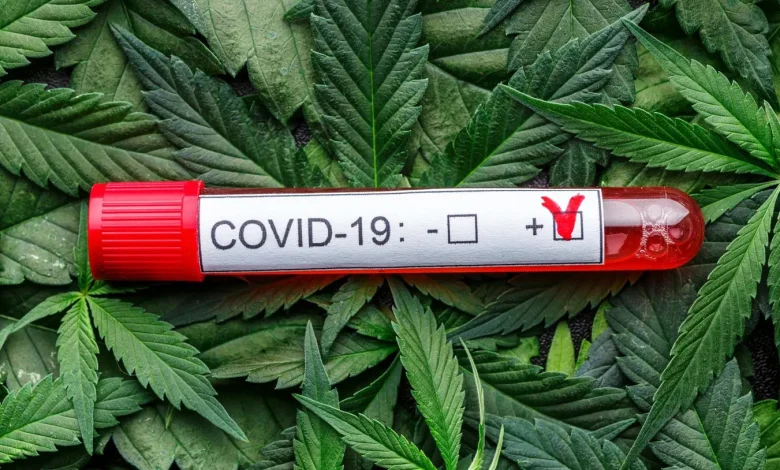Cannabis use connected to worse The results of COVID-19

A study today in JAMA Network Open from Washington University School of Medicine in St. Louis links cannabis use to more severe COVID-19 outcomes, including hospitalization and intensive care unit (ICU) admission—similar to risks from tobacco use.
With many Americans believing cannabis is healthier than tobacco or alcohol as the substance becomes legal in many places and used for medical purposes, the drug has evolved somewhat of a “health halo.”
“What we discovered is, given COVID-19, cannabis use is not innocuous. Senior study author Li-Shiun Chen, MD, MPH, ScD, in a Washington University School of Medicine press release noted, “People who reported yes to current cannabis use, at any frequency, were more likely to require hospitalization and intensive care than those who did not use cannabis.”
Based on results among 72, 501 persons examined for COVID-19 at facilities in a major Midwestern healthcare system during the first two years of the epidemic, the study provides a significant perspective on the hazards linked with cannabis use, particularly in relation to tobacco use.
Of the study participants, 2,717 (3.7%) died, 4,725 (6.5%), needed an ICU visit, and 51,006 (70.4%), needed hospitalization. The average age was 48.9 years; 40.3% of them were Black, 27.6% of them were White, 59.7% of them were female, and so forth.
68.8% overall had at least one comorbidity—observable as maybe influencing COVID-19 outcomes—including heart disease, diabetes, and obesity.
Of the study subjects, 13.4% said they currently smoked; 24.4% said they used cannabis occasionally; and 9.7% said they used it regularly. Former smokers accounted for another 25%.
Cannabis unrelated to higher COVID death risk
The authors computed all-cause death, ICU admission, and hospitalization risks. Though not with all-cause death (OR 0.97; 95% CI, 0.82-1.14%), they observed that cannabis use was substantially linked with higher risk of hospitalization (odds ratio [OR] 1.80; 95% confidence interval [CI], 1.68 to 1.93) and ICU admission (OR 1.27; 95% CI, 0.82-1.14%).
As indicated in past studies, current tobacco smoking was linked to all three worst outcomes for COVID-19. After adjustment for other covariates, current tobacco smoking was notably linked to increased risk of hospitalization (OR 1.72; 95% CI, 1.62 to 1.82), ICU admission (OR 1.22; 95% CI, 1.10 to 1.34), and all-cause mortality (OR 1.37, 95% CI, 1.20 to 1.57).
“Most of the data implying that cannabis is beneficial for you comes from studies in cells or animals,” Chen added. “Our study has the benefit in that it uses actual health-care data gathered throughout several sites over an extended period of time and involves individuals. Every result—including hospitalization, ICU stay, death—was confirmed. We were able to verify the documented consequences of smoking using this data collection, therefore implying the dependability of the data.
These results also help to explain the current low knowledge on the effects of cannabis usage on COVID-19 outcomes given the growing availability of cannabis.” the writers concluded. “Generally, this research urges more study on the relationships between cannabis and tobacco use with COVID-19 outcomes.”
Considering the growing availability of cannabis, these results also support the current limited knowledge on possible consequences of cannabis usage on COVID-19 outcomes.
Leading the study was first author Nicholas Griffith, MD, a Washington University medical resident who was a medical student there at the time. “People answered a yes-or-no question: ‘Have you used cannabis in the past year?’ That provided sufficient data to prove that, should you use cannabis, your path in terms of healthcare will be different; nevertheless, we are not sure exactly how much cannabis you should consume or whether smoking or eating edibles makes a difference.
Those are the questions we would most like the answers for. With future research on the health consequences of cannabis hopefully open doors thanks to this study.”




